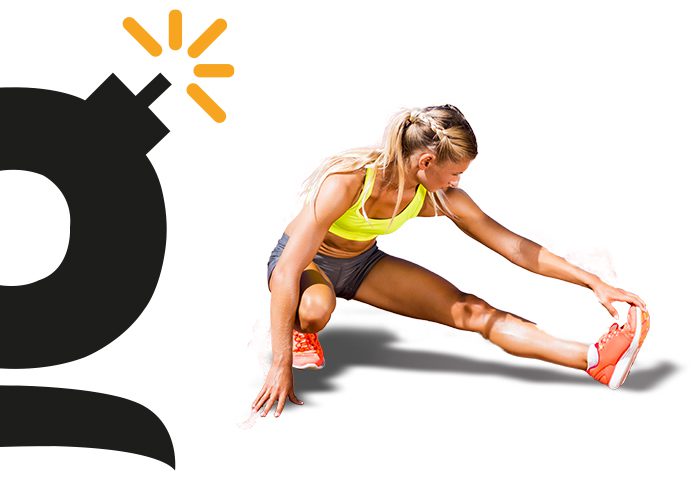
2020 is well documented for the demands the pandemic made on societies mental health and personal well being.
Mental health disorders account for almost a quarter of the total burden of ill health in the UK. More than two-thirds of adults in the UK (69%) report feeling somewhat or very worried about the effect COVID-19 is having on their life. The most common issues affecting wellbeing are worrying about the future (63%), feeling stressed or anxious (56%) and feeling bored (49 (health.org.uk)
Poor mental health is strongly associated with social and economic circumstances, including living in poverty, low-quality work, unemployment and housing. As design is ultimately about people, then knowing that possibly over 50% of people who will use your product or service are likely to be stressed or anxious in 2021 could really affect your marketing message.
There will regrettably be a drop off in work and rise in unemployment which coupled with a new national borrowed debt puts us in an unprecedented situation. Making product accessible to markets especially if they are needed by them for their well-being will be imperative and design can help with user focused design. User-focused design can help by innovating solutions that hit a lower cost price. Furthermore, this unprecedented situation will help incentivise governments to encourage the role out of supportive product and services through non for-profit organisations.
General wellbeing and fitness will see a huge rise in design led product offerings.
The fitness sports business Pelaton - started trading in 2017 and have doubled revenue year on year, with an estimated $3.93bn for 2021. Here at Bang we have seen a surge in home developed gym and fitness product ideas come in from inventors.
The mix of digital with the physical is really motivational. Fitbits and stress tracking are commonplace. Connectivity and community coupled with home gym equipment is really taking the boredom out of home exercise. This will be a growth area and there are many markets that can-not afford a Peloton.

2020 is well documented for the demands the pandemic made on societies mental health and personal well being.
Mental health disorders account for almost a quarter of the total burden of ill health in the UK. More than two-thirds of adults in the UK (69%) report feeling somewhat or very worried about the effect COVID-19 is having on their life. The most common issues affecting wellbeing are worrying about the future (63%), feeling stressed or anxious (56%) and feeling bored (49 (health.org.uk)
Poor mental health is strongly associated with social and economic circumstances, including living in poverty, low-quality work, unemployment and housing. As design is ultimately about people, then knowing that possibly over 50% of people who will use your product or service are likely to be stressed or anxious in 2021 could really affect your marketing message.
There will regrettably be a drop off in work and rise in unemployment which coupled with a new national borrowed debt puts us in an unprecedented situation. Making product accessible to markets especially if they are needed by them for their well-being will be imperative and design can help with user focused design. User-focused design can help by innovating solutions that hit a lower cost price. Furthermore, this unprecedented situation will help incentivise governments to encourage the role out of supportive product and services through non for-profit organisations.
General wellbeing and fitness will see a huge rise in design led product offerings.
The fitness sports business Pelaton - started trading in 2017 and have doubled revenue year on year, with an estimated $3.93bn for 2021. Here at Bang we have seen a surge in home developed gym and fitness product ideas come in from inventors.
The mix of digital with the physical is really motivational. Fitbits and stress tracking are commonplace. Connectivity and community coupled with home gym equipment is really taking the boredom out of home exercise. This will be a growth area and there are many markets that can-not afford a Peloton.

2020 is well documented for the demands the pandemic made on societies mental health and personal well being.
Mental health disorders account for almost a quarter of the total burden of ill health in the UK. More than two-thirds of adults in the UK (69%) report feeling somewhat or very worried about the effect COVID-19 is having on their life. The most common issues affecting wellbeing are worrying about the future (63%), feeling stressed or anxious (56%) and feeling bored (49 (health.org.uk)
Poor mental health is strongly associated with social and economic circumstances, including living in poverty, low-quality work, unemployment and housing. As design is ultimately about people, then knowing that possibly over 50% of people who will use your product or service are likely to be stressed or anxious in 2021 could really affect your marketing message.
There will regrettably be a drop off in work and rise in unemployment which coupled with a new national borrowed debt puts us in an unprecedented situation. Making product accessible to markets especially if they are needed by them for their well-being will be imperative and design can help with user focused design. User-focused design can help by innovating solutions that hit a lower cost price. Furthermore, this unprecedented situation will help incentivise governments to encourage the role out of supportive product and services through non for-profit organisations.
General wellbeing and fitness will see a huge rise in design led product offerings.
The fitness sports business Pelaton - started trading in 2017 and have doubled revenue year on year, with an estimated $3.93bn for 2021. Here at Bang we have seen a surge in home developed gym and fitness product ideas come in from inventors.
The mix of digital with the physical is really motivational. Fitbits and stress tracking are commonplace. Connectivity and community coupled with home gym equipment is really taking the boredom out of home exercise. This will be a growth area and there are many markets that can-not afford a Peloton.

